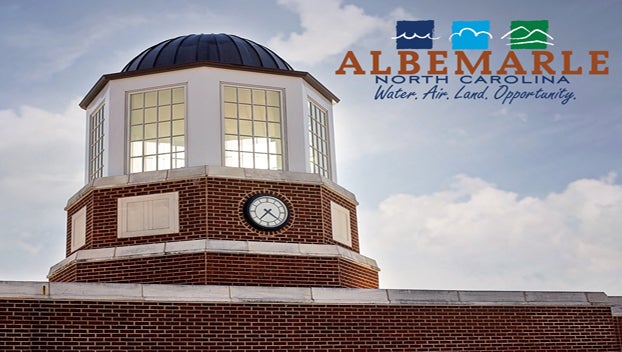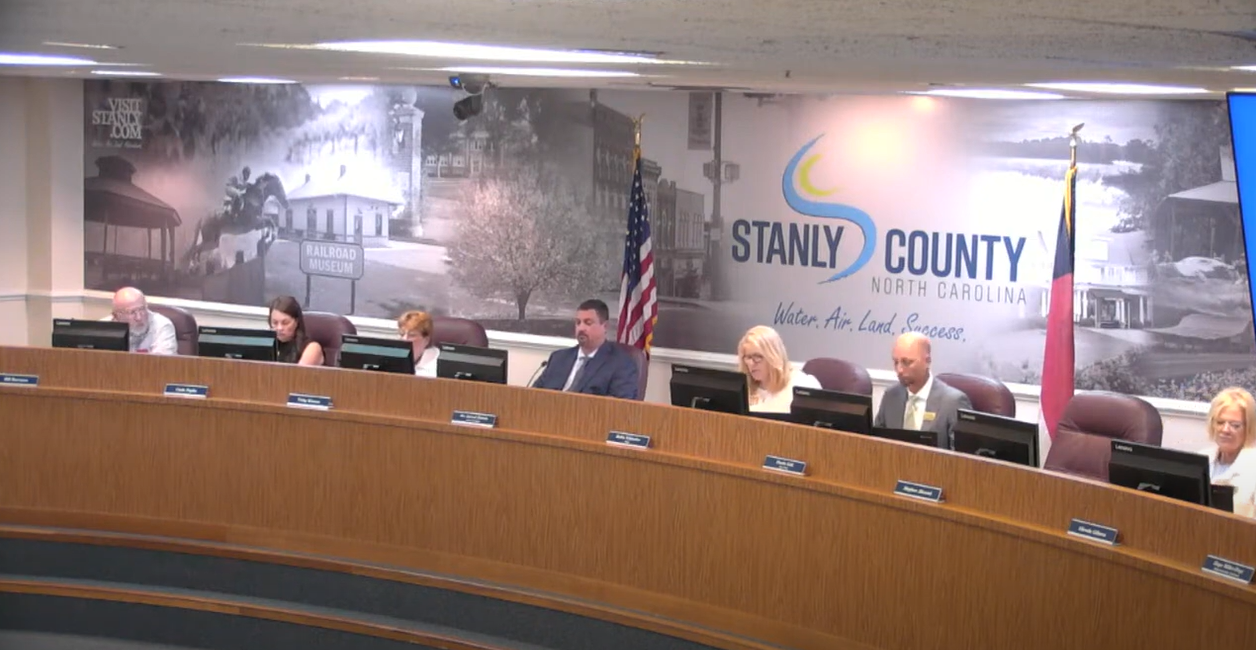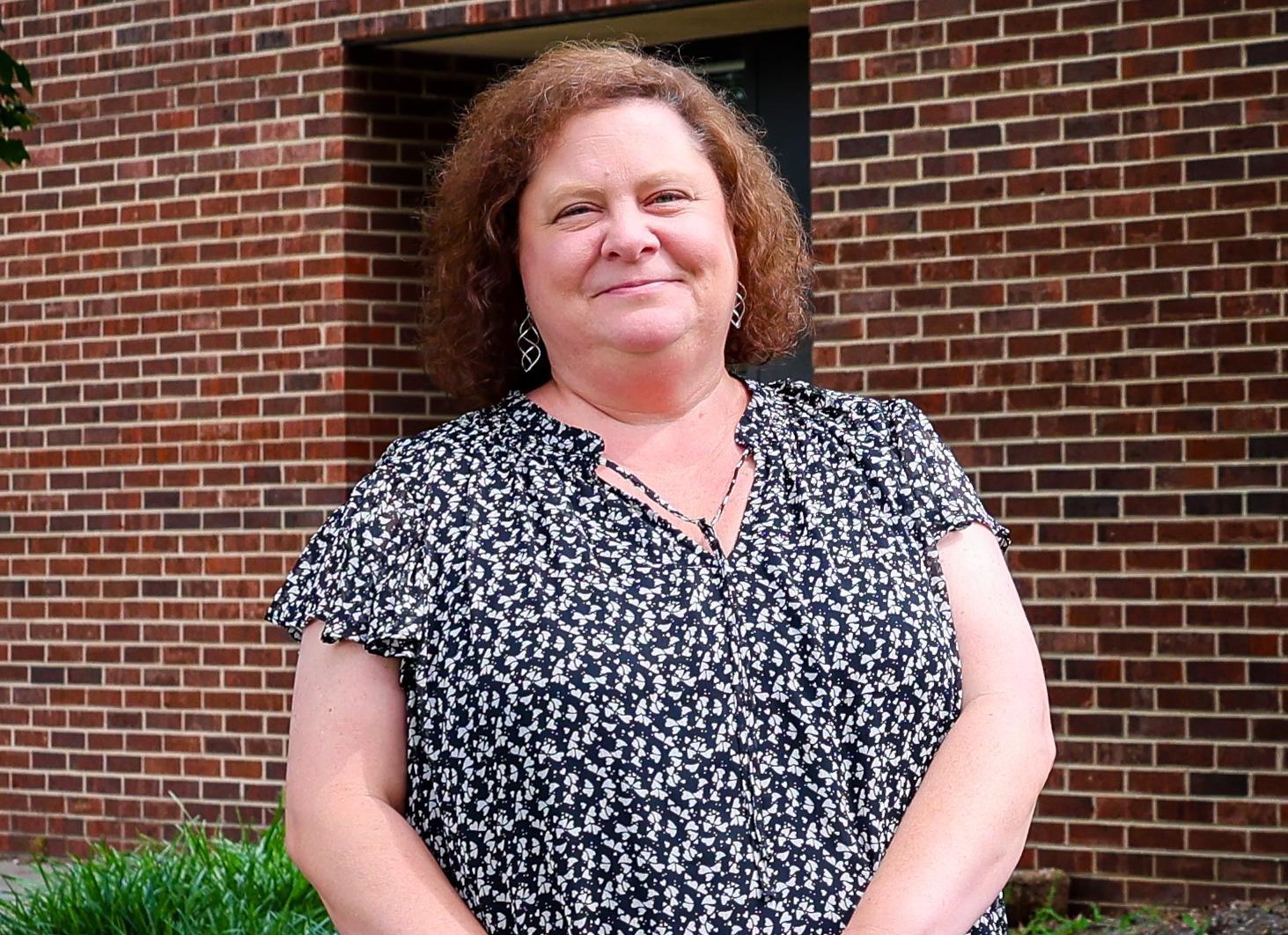Albemarle council continues to debate options regarding stormwater
Published 11:24 am Tuesday, January 31, 2023
|
Getting your Trinity Audio player ready...
|
Following the Albemarle City Council’s decision two weeks ago to vote narrowly against adopting a stormwater plan, members met for a special meeting Monday night to discuss next steps on the issue.
Several council members who opposed adopting a stormwater utility program, which would have included a $5.80 monthly utility fee, still firmly held onto their opposition.
“It’s the timing, it’s just bad timing,” Dexter Townsend said, noting that with prices for everyday items having increased because of inflation, “personally, I cannot afford…throwing anything else on the people right now.”
Chris Bramlett, who noted that he had not heard from any constituents who told him they thought approving a stormwater plan was a good idea, said he did not understand why the Council was still discussing stormwater options after the Jan. 9 vote.
“This is the first time I can ever remember doing something like this on something that got voted down,” he said.
Mayor Ronnie Michael replied that a council member requested a stormwater work session and no other members objected.
Adding to the problem is the city cannot do much to help improve the creeks and streams on its own. A few years ago, City Manager Michael Ferris and Public Works Director Ross Holshouser visited the Mooresville Regional Department of Environmental Quality Office to discuss the flooding issue. They were told the city could not change or alter the creeks and streams (including removing silt and sediment) because they are waterways of the state.
Another issue is Albemarle has no mapping records of the stormwater system and a maintenance program has never been established. The infrastructure, including pipes and catch basins, dates back to the beginning of the mill years.
The city had been working with Charlotte-based community infrastructure consulting firm WK Dickson since February 2021 about developing a stormwater management program to address residents’ concerns about flooding. The issue was first brought to the city’s attention during a June 2020 council meeting, following historic floods.
The city has spent about $572,000 as part of its multi-year contract with WK Dickson, which has been halted.
Following an inquiry by Bramlett about how the money has been used, Holshouser, who has been working with WK Dickson officials for over two years, went through each line item in the contract.
About $145,000 went to a pilot watershed study of Melchor Branch, which included mapping out and surveying infrastructure such as catch basins and pipes to assess for any weaknesses. Melchor was chosen because the entire body of water lies within city limits.
Another $142,000 went to implement the monthly utility fee structure, including determining the equivalent residential units (ERUs) for each non-residential property in the city. A consultant spent two weeks with the city’s utility billing representatives in City Hall last year to “get an idea on what it’s going to take to implement all this stormwater data into our billing software,” Holshouser said.
The city also spent about $75,000 on public outreach, where public engagement consultants with WK Dickson spent months talking with residents at events such as Food Truck Fridays and the farmers’ market to hear about their experiences with flooding issues. Surveys were also completed and mailers were sent out, informing people about what a stormwater program would look like.
“There’s been a lot of moving parts so yeah, I can understand why people think we spent $600,000 and we have nothing to show,” Holshouser said. “But we have a lot to show for it.”
While Council remains divided on the issue, the city could be forced to implement a stormwater system as it could soon qualify to be part of the National Pollutant Discharge Elimination System (NPDES) Municipal Separate Storm Sewer System (MS4) program.
It’s a federal mandate, managed by the state’s Department of Environmental Quality, that would require the city to have a stormwater program. It would include pollution prevention measures, treatment or removal techniques, monitoring, use of legal authority and other measures to control the quality of stormwater discharged to the storm drains.
At least 115 municipalities across North Carolina are already MS4 permittees and Albemarle meets most of the criteria, including having over 10,000 people, to become a candidate for designation. If chosen, Albemarle would be given about a year and a half to implement a stormwater management program.
With Albemarle having firmly been on DEQ’s radar for several years as a candidate, “who knows how long it’s going to take, but I do think it will happen eventually,” Planning Director Kevin Robinson told Council.
After about 90 minutes of discussion, Bramlett proposed using financial resources to map Long Creek, which would then uncover problem areas Council could address.
“That may give some of the rest of us a better feel for what is actually involved out there,” he said. “That’s concrete. That’s something we can show the people — that this is the situation and it has to be dealt with.”
Council approved Bramlett’s motion, which was seconded by Benton Dry, to use $250,000 in American Rescue Plan Act (ARPA) money to match the $250,000 the city received last fall from the Golden LEAF Foundation to use for a watershed study of Long Creek.
Funds could also come from an ARPA grant totaling $400,000 that the city applied for last fall to create a stormwater master plan for Little Long Creek. Holshouser told Council the city should find out in February whether it will receive the funds.
Once the Long Creek study is completed, then the Council could have discussions about committing to specific capital projects.








